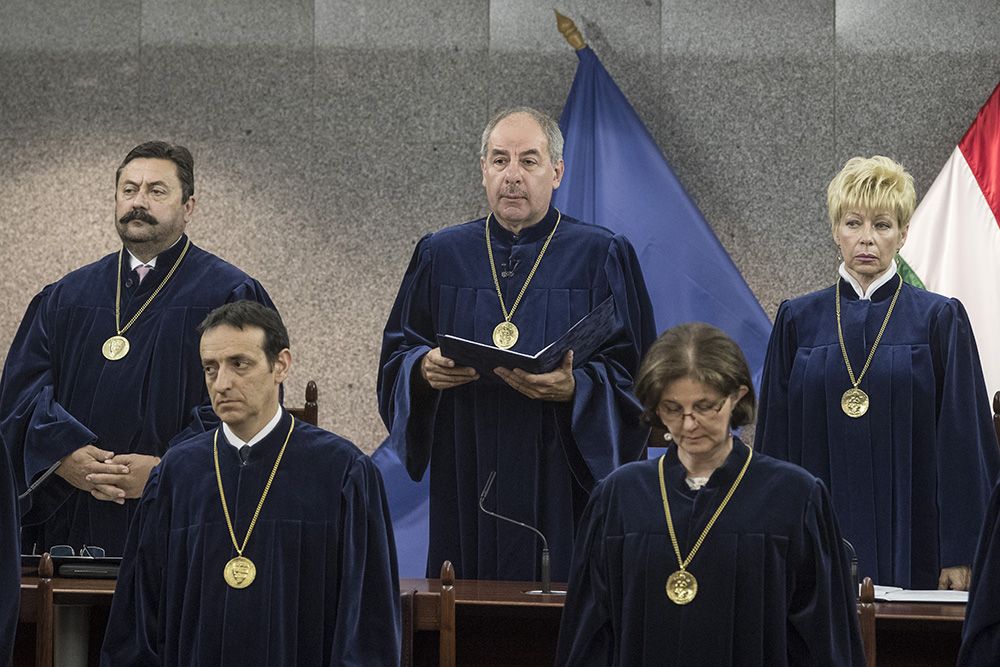
At issue was the LGBTQ storybook Fairyland for Everyone, which a Hungarian newspaper had described as pedophilia.Continue reading

Lesbian association Labrisz had sued the Hungarian conservative daily newspaper Magyar Nemzet in connection with the children’s book A Fairytail for Everyone (Meseország Mindenkié), for an article alleging that the homosexual stories meant for children throughout the book amount to glorifying pedophilia, and the publishers themselves are propagating child abuse. On September 26, the Constitutional Court ruled that the journalist’s right to free speech outweighs the Publisher’s right for protecting its good name.

Photo: Facebook
In its ruling, the court says that it had dismissed the petitioner’s request due to the fact that the content of the article constitutes an assessment judgment. On this basis, the contested communications are relevant to a subject which has given rise to considerable social controversy, which despite their provocative style and exaggerations, they contain important elements of public discourse.
The petitioner, i.e. the publishers of the LGBTQ children’s book, opined that the rejection of their case by courts of the first two instances failed to take into account the fact that the applicant had not endorsed or supported pedophilia in any way; it therefore exceeds the limits of protected expression, to associate his activities with pedophilia, which is a subject of social contempt. In his view, the author’s aim is to incite hatred and stigmatization, which infringes on constitutionally protected rights.
The Constitutional Court, however, concluded that the author of the article did not claim that the petitioner was promoting pedophilia, but that, in his view, the publication of a book on homosexuality for children should be presented in the same way as pedophilia. According to the content of the communication,
sensitization is equally undesirable and dangerous for the age group concerned, just like the pedophilia that society condemns.
In the constant practice of the Constitutional Court, questions of public debate are subject to special assessment, and in such cases, freedom of expression can only be restricted within a narrower scope.
The Constitutional Court had to examine whether the communication itself constituted an infringement of human dignity, which is no longer covered by freedom of expression. In their view, a distinction must be drawn between criticism of ideas and intellectual products and criticism of individuals. All ideas (whether in keeping with the spirit of the times or not) are open to criticism, and anyone is free to express an opinion, even a highly critical one, on scientific, public, or any other writing or communication.
It is precisely these debates that promote pluralism in society and the survival of democracy, and vice versa: it is against democratic discourse if legislation and the application of the law do not allow for the free exchange of opinions and convictions. This is no different in the area of homosexuality.
Democratic discourse requires the state to allow room for different, conflicting opinions and not to hinder them through legislation and law enforcement. These debates should be restricted only in the most extreme cases: neither books nor ideas have any human dignity against which freedom of expression should be restricted.
The author of the newspaper article compared to book to pedophile content. In this respect, the Constitutional Court is of the opinion that regardless of the value and style of the communication, regardless of whether this position is in line with the majority opinion, the article’s communication enjoys the protection of freedom of expression. Article VI of the Fundamental Law does not confer a right to criticize the content of a book or an ideology, since intellectual products do not have any rights of personality.
The Constitutional Court hence concluded that the decision of precious courts did not disregard Article VI(1) of the Fundamental Law in deciding to give priority to freedom of expression over the protection of reputation in the specific case.
The court’s decision was made in an important test case that protects members of the press from intimidation and damaging litigation by well-funded LGBTQ groups, which is often the case in Western European countries. The ruling is regarded by many as a victory for the freedom of expression over radical left-wing ideology that is increasingly reserving itself the right to silence dissent and any criticism regarding its fundamental tenets.
Among the partners of the Labrisz lesbian association, one can find institutions such as George Soros’ Central European University, while among its donors are the Norwegian Civic Funds or the Hungarian Magnet Bank that prides itself in ethical banking.
Featured Image: Constitutional Court